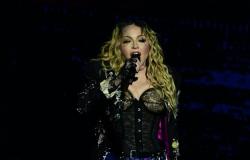April 24, 1974
10:55 pm – The first password of the Revolution
Associated Issuers of Lisbon. Lisbon, Avenida Elias Garcia – The voice of João Paulo Dinis announces to the microphones of the Associated Broadcasters of Lisbon:
“It’s five minutes until twenty-three o’clock. With you, Paulo de Carvalho with Eurofestival 74, ‘And After Goodbye”, by José Niza.
It was the first signal for the participating military units to begin preparations for their participation in the military operations to be launched by the Armed Forces Movement.
AND AFTER GOODBYE
I wanted to know who I am
What do I do here
Who abandoned me
Who did I forget
I asked for myself
I wanted to know about us
But the sea
Don’t bring me
Your voice
In silence, love
In sadness and end
I feel you, in bloom
I suffer you, in me
I remind you, like this
Leaving is dying
How to love
And win
And lose
You came in bloom
I stripped you
You gave yourself in love
I gave you nothing
In your body, love
I fell asleep
I died in it
And when you die
I was reborn
And after love
And after us
Or say goodbye
If we are alone
Your extra place
Your absence in me
Your peace
What I lost
My pain I learned
You came again in bloom
I stripped you…
And after love
And after us
The Goodbye
If we are alone.
April 25, 1974
00:20: The second Revolution password is issued.
On Rádio Renascença, on Rua Capelo in Lisbon – Paulo Coelho is the announcer on the “Limite” program.
The previously recorded voice of Leite de Vasconcelos sounds through the broadcasters of Rádio Renascença reading the first quatrain of the song “Grândola, Vila Morena”, by José Afonso.
It’s on the march military operation “End of Regime” led by captains of the Armed Forces Movement (MFA) to overthrow the dictatorial regime of Marcello Caetano.
But it wasn’t just these songs that “made” the April Revolution, many others express the feeling of freedom that the Portuguese longed for and achieved, in a revolution made of harpsichords and not shotguns.
Selection of some songs to celebrate the historic day together.
“Freedom”, by Sérgio Godinho
The song was composed by Sérgio Godinho in partnership with José Mário Branco. It was released in 1974, in the pre-Carnation Revolution context and reflects the Portuguese people’s desire for freedom and justice.
“Times change, desires change”, José Mário Branco
Based on a poem by Luís Vaz de Camões, from the 16th century, José Mário Branco adapted the poem to the political context of the time, transforming it into an anthem of resistance and hope. The song’s lyrics evoke the idea that, despite difficulties and injustices, desires can change and a new time can emerge.
“Bullfight”, by Fernando Tordo
Composed by Fernando Tordo and with lyrics by Ary dos Santos in 1970, it is a poetic metaphor that criticizes the Estado Novo dictatorship. The song denounces violence, oppression and government hypocrisy, while evoking a sense of resistance and hope for better times.
“Trova Do Vento Que Passa”, by Adriano Correia de Oliveira
Song composed by António Portugal based on a poem by Manuel Alegre in 1963.
“The United People Will Never Be Vanquished”, Luís Cília
Written by Sergio Ortega Alvarado and the Quilapayún before the fascist coup d’état in Chile that deposed Salvador Allende in 1973, “El Pueblo Unido Jamás Will Be Vanced” became one of the anthems of the Chilean resistance and the international left. In 1974 the Chilean band, at the time exiled in France, accompanied Luís Cília, who had also lived in France during the Salazar dictatorship, in this Portuguese version of the song.
“Tanto Mar”, by Chico Buarque
Chico Buarque’s tribute to the Portuguese people and their fight for freedom and democracy, but also a manifesto of solidarity and resistance in the dark times of the military dictatorship in Brazil.





